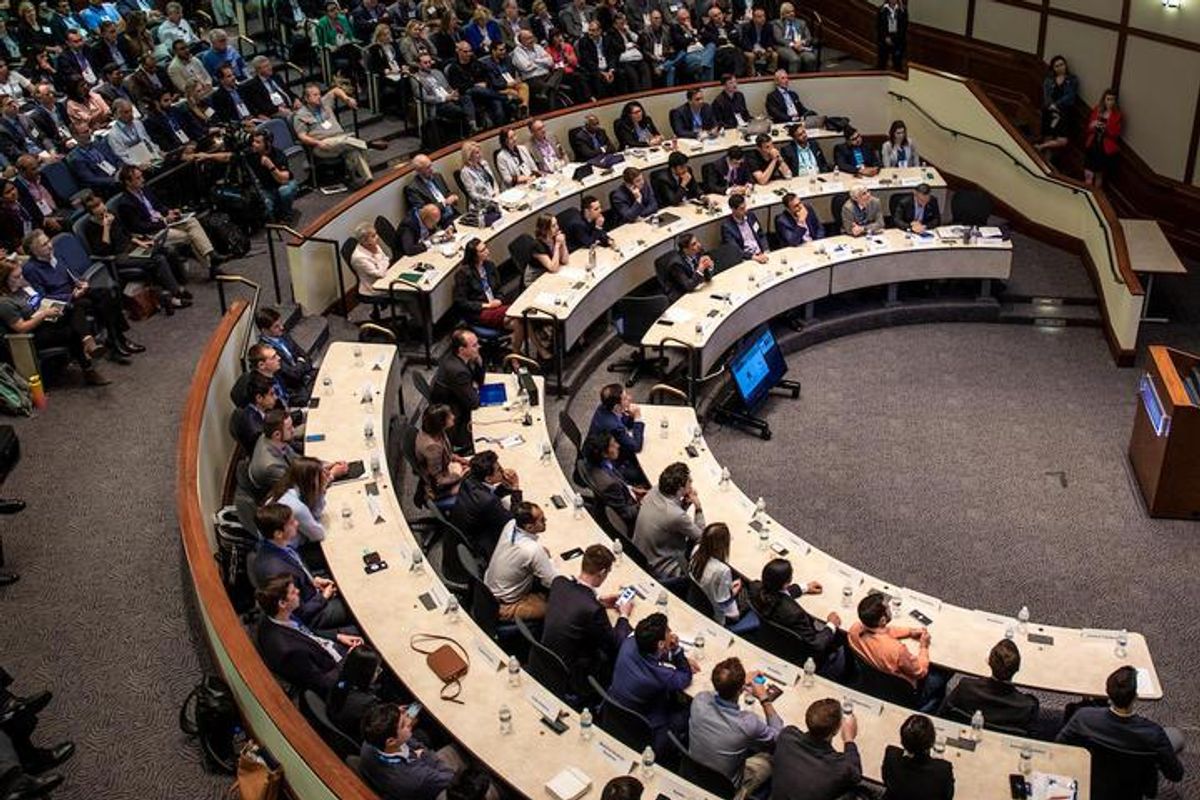Editor's note: It's safe to say 2023 has fully kicked off as Houston's startup and innovation ecosystem has switched into second gear. A handful of programs — local and national — have opened applications for accelerators and pitch competitions. Scroll through to find one that applies to your company or a startup you know of. Take careful note of the deadlines since they'll be here before you know it.
Is something missing? Email natalie@innovationmap.com for editorial consideration.
Carbon to Value Initiative

Greentown Labs announced its looking for innovative companies with carbon-related technology. Photo via GreentownLabs.com
Greentown Labs announced that its Carbon to Value (C2V) Initiative has opened applications for its third set of startups.
"Supported by the New York State Energy Research and Development Authority, the C2V Initiative is a unique partnership among the Urban Future Lab at NYU Tandon School of Engineering, Greentown Labs, and Fraunhofer USA that’s driving the creation of a thriving innovation ecosystem for the commercialization of carbontech—technologies that capture and convert CO₂ into valuable end products or services," reads the news release. "Since the C2V Initiative's inception in 2020, the program has supported 18 groundbreaking carbontech startups—chosen from an exceptional pool of more than 230 applications."
The program is looking for companies with technologies within carbon capture, management, removal, or conversion and between TRL 4 and TRL 7. Selected companies will receive a $10,000 stipend and participate in the six-month program.
Applications are due by the end of the day on March 31. For more information and to apply, click here.
MassChallenge accelerators

MassChallenge has two accelerators open for applications. Photo courtesy of MassChallenge
MassChallenge has two programs with open applications:
MassChallenge US Early Stage Accelerator (Deadline: March 3)
This three-month program is industry agnostic and provides intensive support, guidance, tools, and connectivity to the greater MassChallenge community. Around 200 startups are selected per cohort that range in stage from those currently engaged in customer discovery work to validating a technology or service. For more information and to apply, click here.
MassChallenge HealthTech Accelerator (Deadline: February 6)
The 2023 HealthTech Sprint is an eight-week program intended to work intensely with 20 to 25 startups to accelerate the tools and technologies that could transform healthcare. The HealthTech Sprint program is designed to support mid-stage companies that possess a product/solution ready for scaling. For more information and to apply, click here.
Houston Energy Transition Initiative's Energy Ventures Pitch Competition

HETI is bringing back its CERAWeek pitch competition. Image via houston.org
The Greater Houston Partnership's Houston Energy Transition Initiative, or HETI, is looking for participants for its Energy Ventures Pitch Competition at CERAWeek this year.
"This pitch competition brings together key members of the energy industry, investors, and startups to showcase the critical innovations and emerging technologies that create value from the world’s transition to low-carbon energy systems," reads the website.
HETI is looking for companies addressing challenges and opportunities in CCUS, hydrogen, energy storage, and the circular economy, are invited to present their well-developed business concepts to a world-class investor community.
Applications close February 9. For more information and to apply, click here.
Rice Business Plan Competition

The annual Rice Business Plan Competition has opened applications for student startups. Photo by Natalie Harms
Calling all student-founded startups — the largest and richest intercollegiate student startup competition, the Rice Business Plan Competition, has applications open. According to Rice, 784 RBPC alumni have raised $4.6 billion in funding and created over 5,500 jobs. This year's event is going to be held May 11 to 13.
The RBPC is open to all students from any university around the world. Teams must include at least one graduate-level student, and every team that is invited to compete in person at Rice University is guaranteed to take home at least one of the more that 60 expected cash prizes. For more information and to apply, click here.

 Apple doubles down on Houston with new production facility, training center Photo courtesy Apple.
Apple doubles down on Houston with new production facility, training center Photo courtesy Apple.